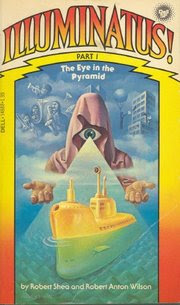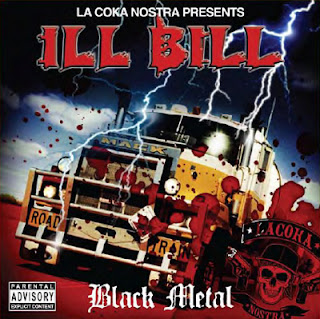“It was in this ocean current that the Nautilus was now navigating. On leaving the Bahama Channel, which is thirty miles wide and more than a thousand feet deep, the Gulf Stream flows at about five miles an hour. This speed decreases steadily as it goes north and it must be hoped that this regular trend will persist, for should its speed and direction be changed, the climate in Europe would undergo an upheaval of incalculable consequences.”
Climate-changes of “incalculable consequences”? Sounds like a definition of global warming. Jules Verne predicted that on page 351 in Twenty Thousand Leagues Under The Sea about 138 years ago.
When I go on reading and he starts explaining how electricity would work in the future I can understand why Bruce Sterling holds him as one of his biggest influences; here you’ll find the same healthy obsession with telling straight stories of high weirdness and scientific inventions that defines anything good by Sterling, and the well-bred, adventurous protagonists seem to spring from the same technological optimism (there’s nothing corny about that optimism, to me Verne and Sterling (together with Tesla, Newton, Fueller and others) represent a kind of rational, corrosive thinking that has made this planet a better place to live on, and which I thankfully count among the characteristics of the human organism).
In our times world science has gone through a degenerative stage; seldomly is the imagination of the masses teased by perfect weapons and bombastic underwater vessels as in the time of Jules Verne and Alfred Jarry. They find life on Mars, increasingly powerful telescopes are charting the properties of fucked-up planets really far away, even brazilians are floating in space, and nobody gives a fuck. Some of this is of course Sterling’s fault. In the 80s he and his comrades in the armed revolutionairy cells of classic cyberpunk helped to reintroduce a technological optimism that had been missing in popular culture since the Space Race of the 60s, but as a contrast to the Babel-works and Whitey On The Moon-adventures of the past, they left the reader on a microscopic, continually mutating DIY-horizont. (Who could, in the shadow of Kamikaze cold war capitalism, know that it was, just like in Terminator 3, the radio amateurs who would inherit the earth?) Looking at the big picture, you can see that the macro-applications of Vernes age disappeared from the field of SF.
But was Verne really all that different from the iconoclasts of recent history? According to Sterling, no:
“It might, for instance, be argued that Jules Verne was a nice guy who loved his Mom, while the brutish antihuman cyberpunks advocate drugs, anarchy, brain-plugs and the destruction of everything sacred
This objection is bogus. Captain Nemo was a technical anarcho-terrorist. Jules Verne passed out radical pamphlets in 1848 when the streets of Paris were strewn with dead. And yet Jules Verne is considered a Victorian optimist (those who have read him must doubt this) while the cyberpunks are often declared nihilists (by those who pick and choose in the canon). Why? It is the tenor of the times, I think.”
In Twenty Thousand Leagues Under The Sea Verne both bores and fascinates us with endless listings of the sea life peculiarities that meet the visitors aboard Captain Nemo’s Nautilius, but the heart of story of the story is the ship itself and its enigmatic captain, a man who sees a necessity, not in new continents, but new men, “nautical towns, clusters of submarine dwellings which, like the Nautilus, would rise to the surface every morning to breathe – free towns, independent cities, if ever there were!” (A comparison with Stephenson’s marine platform clusters in Snow Crash could be at its place here. More interesting than to see this book as a revered classic – a piece on a museum – is to see it as a still vital source for ideas and fantastic impulses. That’s the way it must have been viewed by Robert Anton Wilson; Hagbard Celiné from the Illuminatus-trilogy reminds us more than a little of Captain Nemo.)

As I read about intricate coral reefs, giant jellyfish, sunken ships frozen in time at the ocean floor, the majestic icebergs of the poles, societies of walrus, immense species of whale and the menacing, perfectly built killing machines known as sharks I can’t help but once more think about the sea these days and the weird, rapid changes that must be taking place in its waters due to global warming. SF will surely have reasons to visit the seven seas more frequently in the future.

